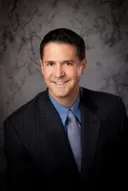How Physician Choices Can Lead to Burnout

Wavebreak Media Ltd/123RF.com
An impossible task would be to find a physician who has never wished to rewind time, even if just for a brief moment long enough to make a different decision. Patients are increasingly complicated and decision making cumbersome and pressured by the scarcity of time. As a generality, physicians pride themselves on their decision-making prowess, but this same skill can be clouded by ego and error.
The stories that follow are real, but the players have been altered to protect their identity. These journeys are shared to illustrate how things can go wrong, even for those with the highest level of education and authority.
Tim was a fantastic clinician and loved by his patients. Medical students and residents appreciated his calm demeanor and unique teaching style. Tim’s thirst for knowledge was insatiable, and he completed two residency programs and then a fellowship. Securing a coveted faculty position, he continued to accept more responsibility, took more clinical shifts, volunteered to deliver countless lectures, accepted committee work and more. It seemed that he lived at the hospital. Perhaps he did.
To the outside observer, his career trajectory was laudable. To his wife and children, the opposite was true.
A slowly growing mask of discomfort had become evident on Tim’s face. His continued absence from home resulted in his wife and young son moving out to live with her parents. Divorce was threatened unless family values could supplant the lure of life in the hospital and the academic spotlight he was enjoying.
Tim’s behavior became more erratic, and his physical appearance began to suffer. He often showed up in wrinkled clothes appearing haggard and unhappy. The pattern continued for another nine months before the glass finally broke.
Dr. Tim disappeared from the schedule for a solid month. Upon his return, he announced he was finished with life in the trenches and was departing to salvage his marriage and life.
Fast-forward six months, and Tim is working regular office hours as a palliative care physician. His wife and child are back in his life, and the career ladder he was rapidly climbing is now leaning against a new building. His former aspirations of stardom took a back seat, and now Tim spends time on the baseball field with his son. His smile has returned, and he now weighs decisions much differently.
Dr. Susan was a talented internist and loving mother. She was married to her college sweetheart and had balanced a challenging residency later in life. Their son was finishing high school and leaving for college in a few short months. Everything seemed on track as planned.
Life as a nocturnist appealed to her as the patient load was more exciting and the salary differential made paying off student loans quickly a real possibility. The hospital administration was top notch, and she loved her work despite the alternative schedule it generated.
She worked hard and played hard, loving travel and endurance races such as marathons and triathlons. Her days off were spent on the bike training for the next event. Her husband was proud of her accomplishments, seemed supportive, but missed her presence.
Working fourteen to sixteen nights per month with occasional extra shifts produced a growing sense of loneliness for her husband. Although he was busy as a midlevel manager at a manufacturing company, a subtle divide began forming in their relationship.
Susan and her husband briefly tried marriage counseling, but she often canceled or was too tired to attend. It was no surprise when her husband asked for a divorce and announced he was seeing someone else.
Susan was devastated and felt betrayed. She had worked hard to get where she was at and despite loving him, refused to understand the impact of being absent for half of every month. Nor could she see the toll night shifts were having on her health and life.
Over the next several months, she began to question her career choice and felt depressed at losing the love of her life. Now that her son was off at college she felt even more alone. Susan began to look for another position with the hope of rebuilding her life. She admits to lying awake, often wishing she could rewind time and make better choices.
Dr. Andrew was everyone's favorite. As a former college athlete and fraternity president, his penchant for antics was known throughout the emergency department. He and his wife hosted wild parties and invited a varied lot of interesting souls.
Despite working only a modest number of shifts, they seemed to have it all: a lake place with all the toys, a cabin in the mountains, a modern architectural wonder of an urban home. He and his wife took trips to exotic locations every few months it seemed. Many were envious
The facade soon began to crumble. Andrew confided that a real estate deal he was relying on for a windfall fell through. He and his wife had been teetering on financial destruction for the last year, and the dominoes rapidly tumbled.
Creditors lined up. Their homes were sold hastily. Andrew was a fantastic doctor, but his financial planning led to economic suicide. He filed for bankruptcy and feeling ashamed, left his position for another job shortly after that.
Physicians are not immune to calamity. Although we pride ourselves as healers with intuition and cunning, it is often we who are in need of help and find our lives slipping into critical condition. Undoubtedly, the physicians in these scenarios would pause, rewind, and rewrite the chapters of their lives differently.
Life in the trenches is difficult at best. Medicine continues to advance at an exponential rate, but physician burnout remains constant. Who will step forward with a solution before all the healers are destroyed?
Related Posts
